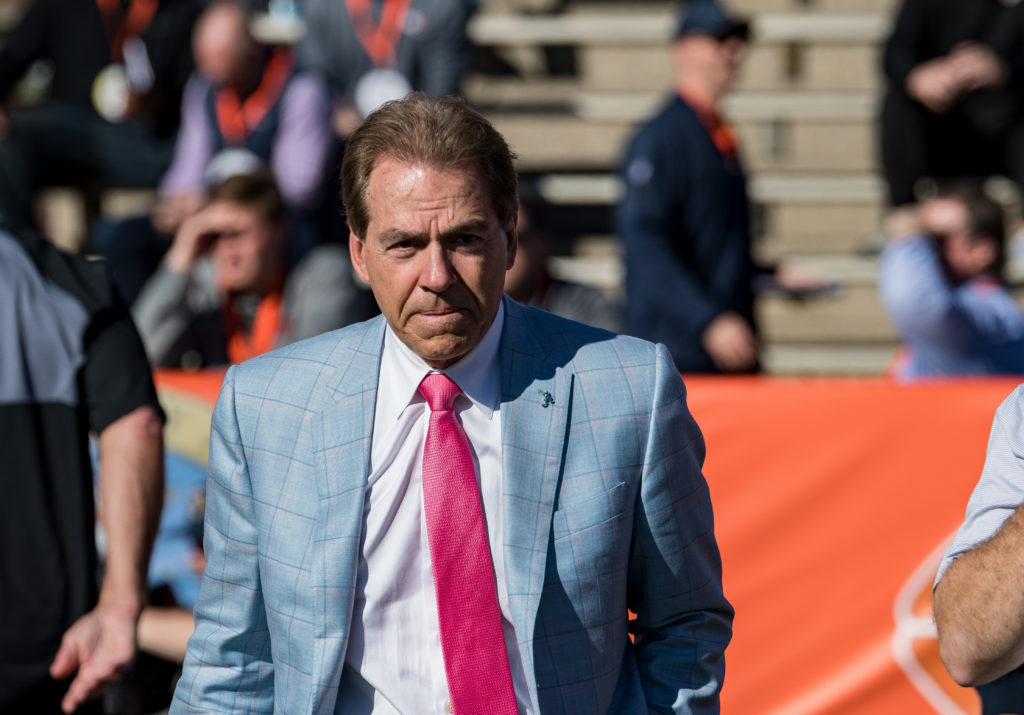As you know, there are many parallels between sales and sports. In both sales and sports, everyone is the member of a team, each member has a different role, and the entire team’s success depends on individuals giving their best. And, as with sports teams, great sales teams need great coaches to bring out the best effort from their individual performers.
Strategies are only as good as the people assigned to execute them. That’s where the art of coaching sales reps occurs — getting a team to perform at its best. Let’s look at Seattle Seahawks coach, Pete Carrol, and what he does differently from other football coaches. There are some excellent lessons for sales coaches.
The Sports Lesson
The Seattle Seahawks were just coming off the 2014 Super Bowl victory, and the team was hoping for similar results in 2015. On the practice field at their Renton, Washington training facility, the team looked good during warm-ups and individual drills led by the different position coaches.
About an hour into the practice, the team divided into offensive and defensive units to scrimmage in a simulated game situation. But with a twist. After each play, coaches held short meetings with each unit. The offensive line coach gathered his five linemen around him to review what happened on the play. The wide receivers coach gathered his players to conduct a similar meeting on another part of the field. Each coach took 3 or 4 minutes to meet with his players.
What was happening during these football “business” meetings?
Coaches reviewed the play, asking players what they did wrong and what they did right. Where a player made a mistake, the coaches asked, “what should you have done there?” or “what is the right way to run that play?” No yelling or screaming, no generic “get it right” demands, just simple, methodical dialogue about the good and the bad of the play. Then a few questions about what “good” looks like, followed by another play and another brief meeting.
Post-practice, reporters interviewed Pete Carroll who explained the slow pace of the practice and the unusual meetings. “We’d rather get 10 plays exactly right than run 25 plays half way.” He explained that his coaches have been taught to coach differently. “We want our players to own the process of getting better and buying into what it is we want them to do. It doesn’t matter if we have good ideas: the players have to understand them and know how to utilize what we are teaching them on the field. We believe the best way to do this is through questions which help them understand where they went wrong and then we ask the players to self-diagnose how to get better on each and every play.”
The Sales Lessons
Like great sports coaches, great sales coaches help their teams see what went right and what went wrong in meetings with customers. But the key point is these particular coaches spent more time asking questions than telling their salespeople what to do. Time and time again, we see good sales coaches hold meetings not unlike the ones on the practice field at the Seahawks camp. They gather their teams after an important sales meeting, and they spend time asking questions around these themes:
- What does good looks like?
- Do you know what you’re doing compared to “good”?
- Do you know what you should do to improve, and do you know how to execute the right behaviors next time?
Ask Questions, Don’t Instruct
Asking questions encourages the salesperson to uncover information and insights for themselves. For example, asking general questions will help reps develop an understanding of where they are relative to the competition or to other sales reps in the company. More probing questions about obstacles and opportunities will help a manager see where a rep is struggling and uncover opportunities to help improve performance. At the Seahawks camp, one of the coaches asked a wide receiver, “How many balls do you think you dropped last year because you were out of position on that particular play?” Similarly, a manager might ask “How many orders do you think you lost last quarter because of this challenge you face in your sales conversations?”
Questions get the rep to see things differently. One of the Seahawks coaches felt a player was not giving his full effort on a certain play. Instead of berating the player, the coach asked, “Tell me what your lack of effort does to the rest of the team on that particular play?” The coach was trying to get the player to see how his behavior impacted others. Sales coaches can do the same thing.
We’ve seen managers tell reps what to do countless times, then the reps dutifully try to execute without real buy-in or understanding. Real coaching helps the rep develop their own ideas for improvement so that over time, they can diagnose and create plans for themselves. As Pete Carrol has demonstrated, changing the way you talk to your players will yield incredible results in the performance of your team.
——————————————————————————————————————-
Authors
Jason Jordan
Partner, Vantage Point Performance
 Jason Jordan is a founding partner of Vantage Point Performance, a global sales management training and development firm, and co-author of Cracking the Sales Management Code. Jason is a recognized thought leader in the domain of business-to-business sales and teaches sales and sales management at the University of Virginia’s Darden Graduate School of Business. Jason received an economics degree with honors from Duke University and an MBA from the University of Virginia. As a popular speaker and writer, he is a frequent contributor to the Sales Management Association, the American Society for Training and Development, Forbes and other industry groups and publications. Sign up for Vantage Point’s newsletter to stay up to date with the latest sales manager research and best practices.
Jason Jordan is a founding partner of Vantage Point Performance, a global sales management training and development firm, and co-author of Cracking the Sales Management Code. Jason is a recognized thought leader in the domain of business-to-business sales and teaches sales and sales management at the University of Virginia’s Darden Graduate School of Business. Jason received an economics degree with honors from Duke University and an MBA from the University of Virginia. As a popular speaker and writer, he is a frequent contributor to the Sales Management Association, the American Society for Training and Development, Forbes and other industry groups and publications. Sign up for Vantage Point’s newsletter to stay up to date with the latest sales manager research and best practices.
Leff Bonney
Vice President of Research and Product Innovation, Vantage Point Performance
 Leff Bonney (PhD, MBA) is a professor of marketing at Florida State University as well as Vice President of Research and Development for Vantage Point Performance. Leff also serves as Director of Executive Programs for both the FSU College of Business and the FSU Sales Institute, which has been recognized as the premier university sales program in the United States. Leff serves on the Board of Directors for the Sales Education Foundation, and he is founder of the Sales Educators’ Academy, which prepares university sales faculty around the world to better teach sales and sales management. Recently, Leff won the American Marketing Association’s Don McBane Award, which is given to sales educators and sales leaders who have made a lasting impact on the sales profession.
Leff Bonney (PhD, MBA) is a professor of marketing at Florida State University as well as Vice President of Research and Development for Vantage Point Performance. Leff also serves as Director of Executive Programs for both the FSU College of Business and the FSU Sales Institute, which has been recognized as the premier university sales program in the United States. Leff serves on the Board of Directors for the Sales Education Foundation, and he is founder of the Sales Educators’ Academy, which prepares university sales faculty around the world to better teach sales and sales management. Recently, Leff won the American Marketing Association’s Don McBane Award, which is given to sales educators and sales leaders who have made a lasting impact on the sales profession.







